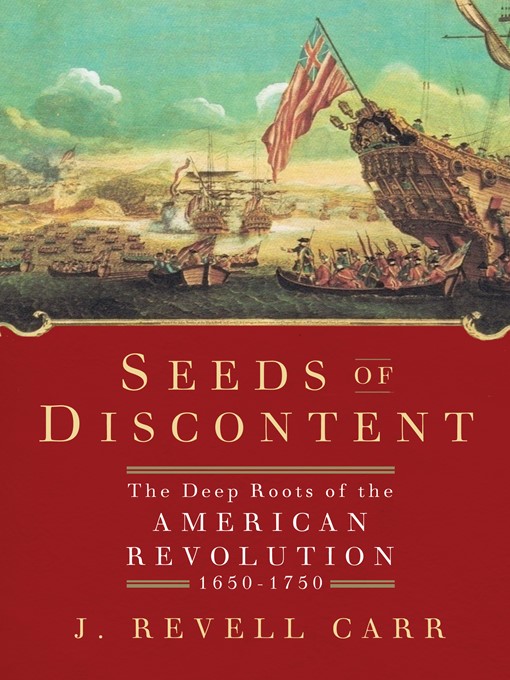A narrative history of the largely unexplored eventsâ€"starting almost a century before-that inspired the colonists to launch the American Revolution. The causes of the American Revolution are most often defined as the Stamp Act and other repressive actions by the Crown against its colonies in the years following the French and Indian War. While these are the direct causes, J. Revell Carr takes a longer view, and in Seeds of Discontent , he locates the roots of the Revolution a century earlier, and argues that "the cumulative effect of more than one hundred years of British disrespect, mismanagement, and exploitation prepared the minds of the colonists for revolution.- In the latter half of the seventeenth century, tensions between colonists and the Crown were strikingly similar to those of 1775: representative legislatures had been suspended, the charters of colonies had been revoked, free trade was being impeded by Navigation Acts favoring the Crown, and heavy taxes were being levied unilaterally. The colonists' frustration erupted in April 1689, when the king's representative, who governed the region from Maine to Pennsylvania, was overthrown and seized in Boston. The rebellion spread down the coast, and for the first time colonists risked their lives against English firepower. Unprepared to break with England, the colonists submitted to new governance, but had demonstrated that they could rebel. Through subsequent decades, numerous instances of British abuse fostered resentment, reaching a peak after the 1745 conquest of Louisbourg, the seemingly impregnable French fortress in Nova Scotia. Though it was won on England's behalf at great cost to the largely American-born strike force, the British summarily returned Louisbourg to France four years later-an act that outraged politicians, citizens, and soldiers alike. Bringing to life the two generations that inspired our founding fathers, Revell Carr illuminates the eventful half-century that inspired a revolution.
- Available now
- Newly Added eBooks
- Most popular
- Newly Added Kids
- Newly Added Teen eBooks
- Try something different
- Read a Classic
- See all
- Available now
- Newly Added Audiobooks
- Most popular
- Newly Added Kids Audiobooks
- Newly Added Teen Audiobooks
- Hidden Gems
- See all


